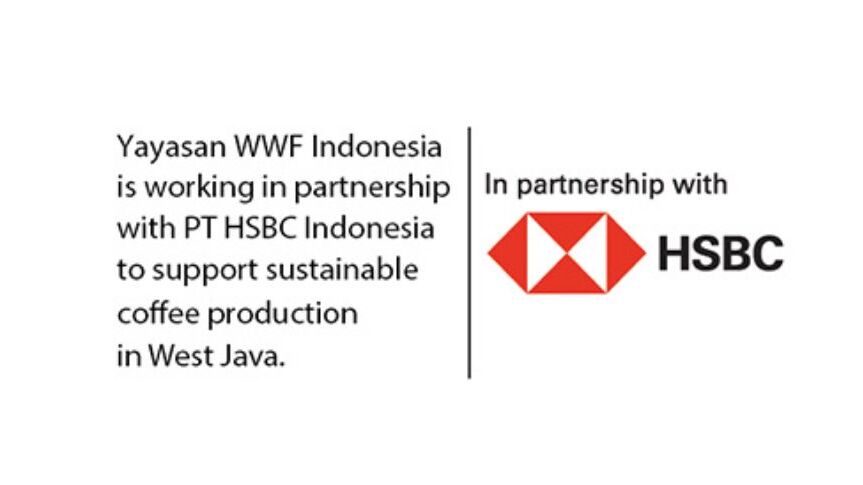HSBC : SUSTAINABLE COFFEE PRODUCTION
Coffee is a shrub plant that can grow in tropical areas with an altitude of 100 - 1600 meters above sea level according to the type of coffee to be planted. In Indonesia, there are 3 types of coffee, namely Robusta Coffee, Arabica Coffee, and Liberica Coffee. To produce good quality coffee, shade trees are needed to prevent the coffee from being exposed to too much sunlight.
Shade trees commonly used are sengon trees, lamtoro, suren, pine, puspa, and other forest plants. The function of shade trees in addition to increasing coffee productivity can also hold soil and water from erosion that can cause flooding, in other words, coffee gardens also have a conservation function. In order to create an ideal growing environment for coffee plants, the plants must be shaded by woody plants that function as microclimate control.
In West Java, coffee has great potential and is also said to be the best coffee because it comes from the best geographical location. One of the coffee-producing areas in West Java is in the area of Tugu Utara Village, Cisarua District, Bogor Regency. The Cibulao Forest Farmer Group (KTH) in Tugu Utara Village has attracted a lot of attention from various groups because it can produce quality coffee with its own unique taste, so that in 2016 Cibulao Coffee received the title of the best Robusta Coffee in Indonesia. In addition to KTH Cibulao, there are several KTHs that also cultivate coffee in this area, namely KTH Cikoneng, KTH Rawa gede, and KTH Cisuren.
To improve the quality and productivity of responsibly and sustainably produced coffee in West Java, WWF Indonesia Foundation together with PT Bank HSBC Indonesia through the program 'Towards Sustainable Coffee Production in West Java'. This program is carried out in collaboration with relevant stakeholders to provide assistance to coffee farmers who are members of KTH Cibulao, KTH Cikoneng, KTH Rawa gede, and KTH Cisuren as well as the Village Community Forest Institution (LMDH) Puncak Lestari in order to optimize sustainable coffee cultivation in Hulu Ciliwung and also at the same time, encourage the coffee industry in West Java to apply the principles of sustainable coffee management.

